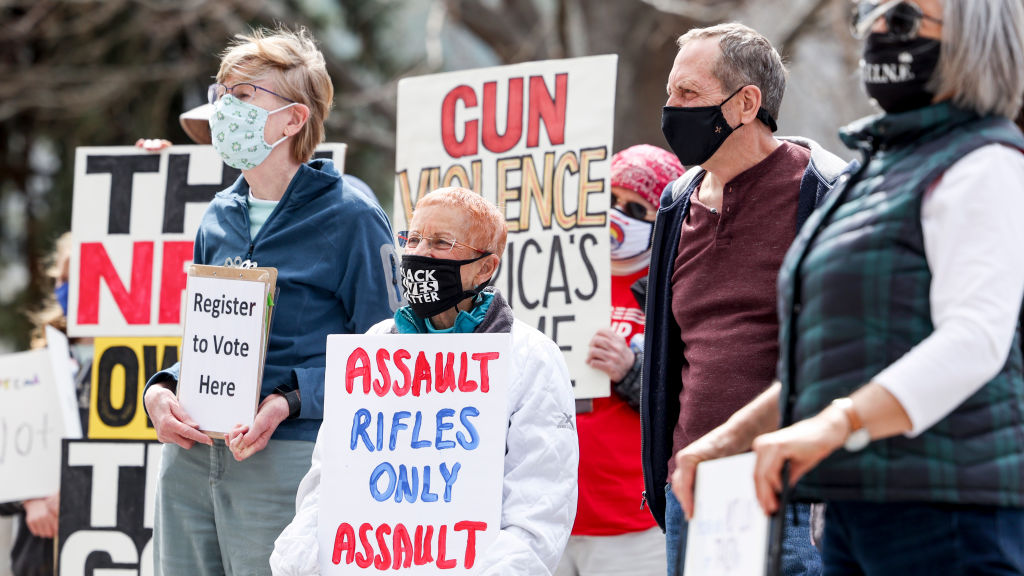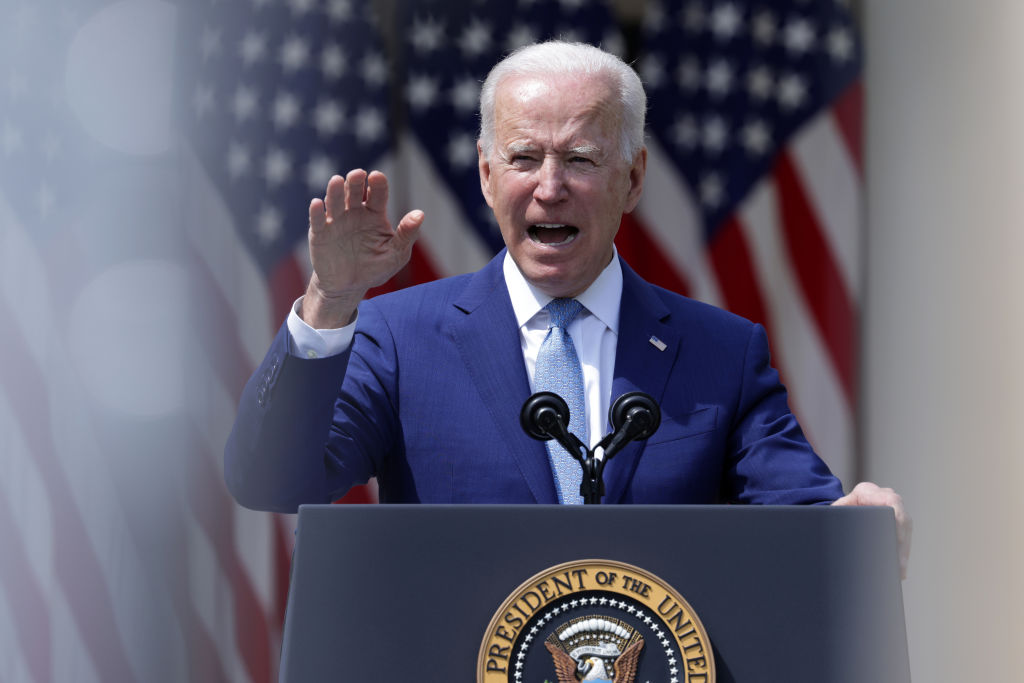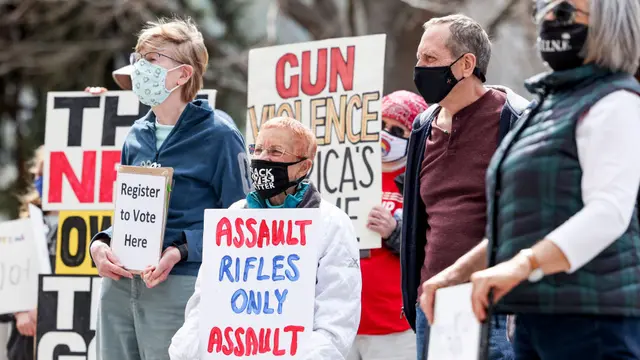
A gun reform rally at the Colorado State Capitol, March 28, 2021, Denver, Colorado, U.S. /Getty
Editor's note : Ray Baker is an adjunct professoratTowson University. The article reflects the author's opinions, and not necessarily the views of CGTN.
Following what feels like an uptick in mass shootings in the United States, President Joe Biden announced his plans to take executive action in an attempt to curb gun violence. During remarks on April 8 in the White House Rose Garden announcing his executive actions, he called gun violence in the United States "an epidemic" and said it was an "international embarrassment."
While true, gun violence is both a national epidemic and an international embarrassment, it is also deeply woven into the fabric of the American character. It is easy to get bogged down in the recent history of American gun violence. There are the memorable incidents of violence that come to mind just by hearing the location: Aurora, Colorado; Newtown, Connecticut; and Parkland, Florida just to name a few.
The tension that the United States wrestles with, is how to turn a nation that's steeped in violence and has used the gun to acquire most if not all of its most treasured possessions into a place that doesn't use the gun or violence as its currency.
History is a strange lover for many United States residents. On one hand, the founding fathers are revered as brilliant pioneers who wrote eloquently and fought valiantly for freedom and liberty. Another school of thought locates these men (on the whole, with exceptions) as avarice capitalist who through genocide and exploitative slave labor grew the American settler colonial project, leaving founding documents that often lay in contradiction to the behaviors of the men who wrote them.
Guns in the United States live a similar dual life. Those who support gun possession and oppose laws attempting to regulate them, often cite the Second Amendment to the United States Constitution which reads "a well regulated Militia, being necessary to the security of a free State, the right of the people to keep and bear arms, shall not be infringed."

U.S. President Joe Biden speaks during an event on gun control in the Rose Garden at the White House April 8, 2021 in Washington, DC. /Getty
The words of the amendment tell one story, but the justification tells quite another. Alexander Hamilton writing in Federalist Paper No. 29 says the militia is needed for “times of insurrection and invasion." The founders were concerned about the enslaved population striking their own blows for liberty and freedom, so it was necessary to write legal possession of the gun into law.
Meanwhile, there was also concern that the new nation was vulnerable to outside invasion by a European power. The origin story of the freedom and liberty of bearing arms conflicts with the reality of the times and is even less relevant today.
Yet, the Second Amendment is still a go-to argument for resisting gun control in the United States. Some observers suggest the pushback against gun control is a product of the lobbying efforts of the National Rifle Association (NRA). While today, the organization behaves as though there's never been a firearm that they didn't love, that wasn't always the NRA's position. At various points throughout the United States' history, the NRA was in support of laws regulating guns, including the 1934 and 1938 National Firearms Act.
Most American commentators are inclined to argue over specific gun control policies. It may be more useful to take the 30,000 ft. approach and look instead at the American fascination with guns and the necessary violence and power that comes with it.
After 245 years of the United States and its citizens using the gun to take what they want, attempts to restricting access to the gun and minimize harm done by the weapon feels akin to putting toothpaste back in the tube. Americans have watched their government wield the latest most technologically advanced weaponry across the world to access resources and dominate globally. The gun was used to in the westward expansion to drive Indigenous people off their land so it can be claimed, cultivated and settled by Americans.
Time and again, Americans have watched as their country has used the gun to signal power. Now the same tool the country has used to impress its will across the earth is wreaking havoc on its citizens. The problem is that Americans by and large don't know how to exist without the gun. So many Americans are conscious of the power the gun wields and fear giving up their gun because with it they fear the loss of power. If there is anything we know of Americans, it is their obsession with the power. If schoolchildren or concert-goers die to maintain access to the tool of power, Americans have decided that's just the cost of doing business.
Important to remember there are notable exceptions to Americans love affair with guns. Namely, guns in the hands of Black people have been met with laws firmly opposing, regulating and restricting possession, particularly in the 19th century during the antebellum period in the American south. Even that is a question of power. European colonial settlers (from Britain, France, and Spain) opposed and aggressively regulated Black gun ownership because they sought to regulate power.
Today, as the nation wrestles with policy ideas to combat gun violence, the opposition to gun control is mighty because Americans see power in the gun and are unwilling to give up that power. What observers can learn from this is that violence is the language of American power and guns are the words American use to speak. Regardless of President Biden's best intentions, history tells us on the gun question, Americans will not be muted. Even if it means more bloodshed.
(If you want to contribute and have specific expertise, please contact us at [email protected].)
 简体中文
简体中文

